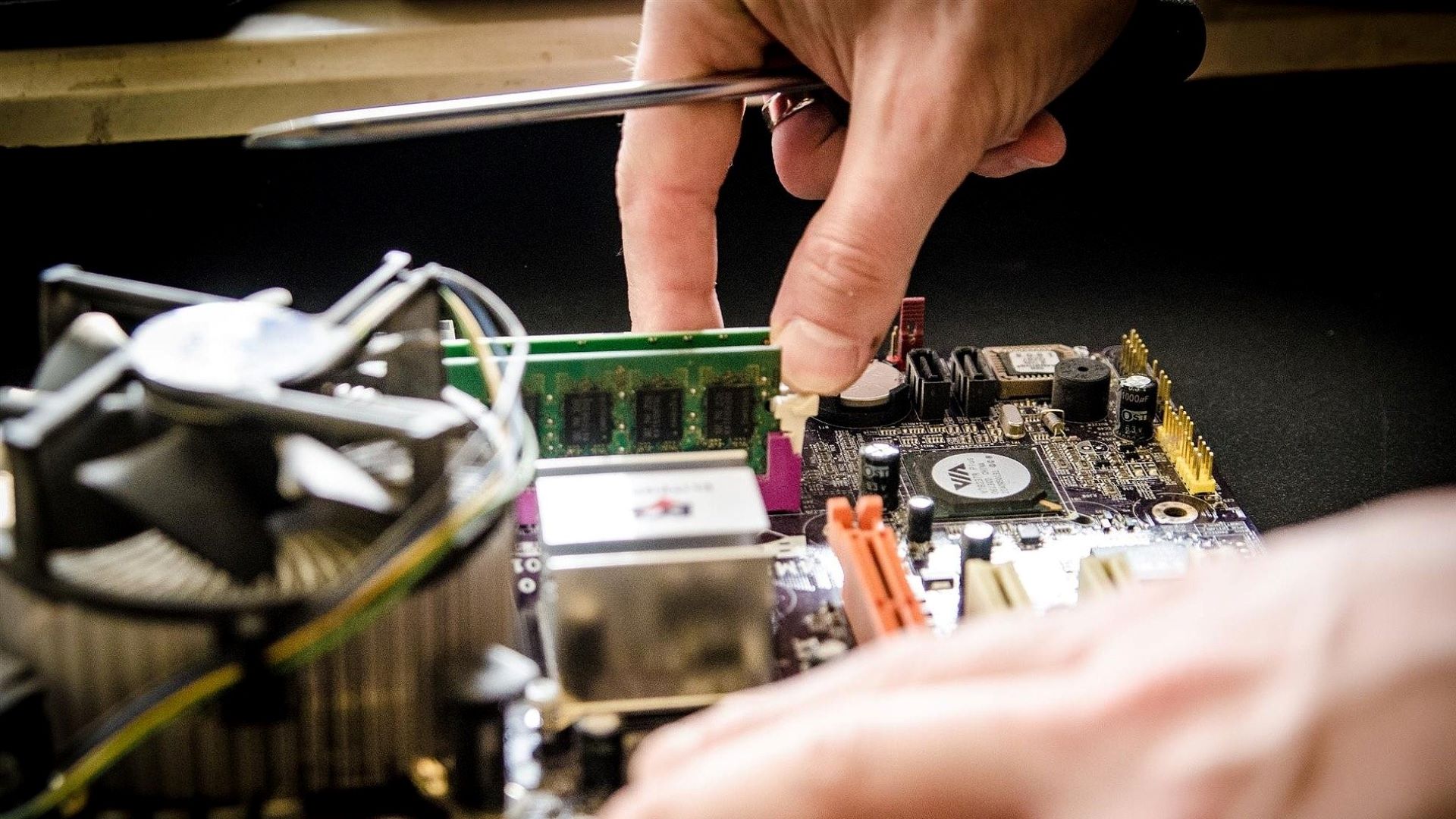“At the beginning of April there was a feeling within the Remade Network of – are we going to survive this? But actually, we’ve grown and been able to recruit more people,” Unwin told The Big Issue. The new project has already created six jobs with plans for more by the end of the year.
“Life was already difficult for people who don’t have a computer. When you add Covid-19 to that, it becomes pretty serious.
“This project is helping people study, access basic services and not be isolated and at home on their own.”
Glasgow’s Somali Association, which supports the local Somali community with sports and activities, will be one of the first organisations to receive a free computer. Single mum Elaine McAloon is set to receive one too, with seven-year-old son Maxwell having been unable to study since April because they don’t have a working computer at home.
Somali Association chair Mohamed Amber said: “These computers will help us teach digital skills to adults, parents and carers who are much less digitally engaged than the younger generation.
That’s just what you do when you don’t have a big budget to buy new. You make things last longer
“Learning how to access the internet, make video calls, search for jobs and communicate with their families that are often living in a distant country will help bridge gaps and bring families closer together.”
Advertising helps fund Big Issue’s mission to end poverty
The Remade Network will be working with Govanhill Baths Community Trust, Repair Cafe Glasgow, Glasgow Tool Library and the Pram Project, which repairs and donates prams to families in need. Through the Repair Stop, the Pram Project will be able to turn the volunteer-led initiative into a business using a buy-one-give-one model.
And the grassroots organisations have eyes on setting up affordable repair centres across the city after restrictions lift.
“We’ve been able to share and share resources and knowledge, allowing us to do things on quite a shoestring,” Unwin said.
“Working together has been quite heartwarming. And being able to feel a part of something, working towards something good together, has been a valuable bonus during lockdown.”
Unwin said setting up a hub in Govanhill, where there is a high rate of poverty, was a key part of her vision for the inequality-tackling collaboration.
“It’s really important and something that can be overlooked in the green agenda. The circular economy can end up being just about efficiency gains for businesses,” she said.
Advertising helps fund Big Issue’s mission to end poverty
“But the people who are least polluting and least contributing to environmental problems are the ones who consume the fewest resources.
“Plus people from more deprived communities are incredibly resourceful and creative. They’ve got skills in repairing and fixing things because that’s just what you do when you don’t have a big budget to buy new. You make things last longer.”
The Remade Network director came up with the idea after living in rural Nepal where she created less than a dustbin of rubbish in a year, going on to set up Remade projects in Brixton and Edinburgh.
“Repair is not a shiny new thing in any way,” she said. “It’s about tapping into the skills that are already there in communities and trying to make sure the people there benefit from those skills.
“It’s really important to be working with these grassroots groups from the local area. They know their communities far better than I do. Together we can create jobs for people with those skills, and help them generate an income.”
Wellbeing Economy Alliance policy lead Katherine Trebeck and Scottish Green co-leader Patrick Harvie will be there to support the project at its launch today, looking to promote the circular economy model that could help Glasgow bounce back from the Covid-19 crisis.
Advertising helps fund Big Issue’s mission to end poverty
Govanhill Baths Community Trust manager Fatima Ugyun said: “Covid-19 has shone a light on inequality and the community sector has pulled together to respond. This is a great partnership for us that will help create income streams and deliver essential products and services to local people.
“Please bring along all those unwanted laptops and phones that you’ve been clearing out during the lockdown – we’ll make sure they go to a good home.”
The Repair Stop is based at the Deep End arts space, 21 Nithsdale Street in Govanhill.









